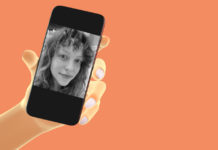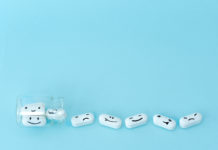Mental Health Survival Kit, Chapter 2: Is Psychiatry Evidence Based? (Part 9)
On Denmark's declining use of depression pills for children, and why one should never stop fighting to change psychiatry and society's reliance on it.
Study Confirms Overdiagnosis of ADHD in Children and Teens
Medical researchers present evidence that ADHD is overdiagnosed in children and teens, which can lead to significant harm.
When Will We Hear the Voices of Those Who Hear Voices?
From Sacredphrenia: We have never been so starved for the spiritual. Who better to satiate our hunger than the very people who hear voices belonging to spirits?
How Can Mental Health Research Become More Relevant to Those it is Meant to...
As a psychiatrist, my bread-and-butter is the kind of private practice in which my patient’s concerns become my own and it is those concerns that drive our work together, my teaching, and my research.
Oprah & Dr. Bruce Perry Examine Childhood Trauma in New Book ‘What Happened to...
From CBS This Morning: "Each of us creates a unique worldview shaped by our life’s experiences, and most of that worldview is shaped when you are a child," said Oprah.
Nutrition Is the Foundation of Resilience
Recent studies show that we are not consuming as healthy a diet as our ancestors did. Would that matter to our brain health? Yes!
Fight Is Far From Over After FDA Ban on Judge Rotenberg Shock Device
From NBC News: The ban should have meant victory for those fighting the school, but more than a year later, it hasn't actually changed anything.
Women We Call Crazy
“You’re so different,” people would say to Betty and me. We joked about the thinly veiled criticism—people thought we were crazy because we were women who consciously defined ourselves and how we wanted to live.
NYC: Social Workers, EMS to Replace Cops on Non-Violent Mental Health Calls Citywide
From PIX11: A pilot program that has kept NYPD officers away from many mental health crisis calls in parts of Manhattan will expand to every precinct citywide, Mayor Bill de Blasio announced on Monday.
The Relapsing Peer Supervisor
Peer supervision is often silent and stigmatizing instead of including necessary, robust discussions around relapse.
Questioning the Moral Panic Around Teletherapy: An Interview with Hannah Zeavin
MIA's Emaline Friedman interviews Hannah Zeavin about what the history of teletherapy reveals about its limitations and radical potential.
Robert Whitaker: The Rising Non-Pharmaceutical Paradigm for “Psychosis”
From ISPS-US: A review of the science that calls for a radical change or evidence-based paradigm shift in psychiatric care, and pilot projects that tell of a new way.
Antidepressants Not Clinically Useful for Back Pain
While professional guidelines recommend antidepressants for back pain, researchers point out the lack of evidence for their usefulness.
Who Responds Best to Mental Health Emergencies?
From MedPage Today: The Senate Judiciary Committee held a hearing Thursday on policing and behavioral health, as calls for defunding the police increase and as people in mental crisis are 16 times more likely to be killed during a police encounter.
Mental Health Survival Kit, Chapter 2: Is Psychiatry Evidence Based? (Part 8)
On psychiatry’s resistance to admitting to withdrawal effects, as well as the way doctors and scientists are treated when they critique the establishment.
Cochrane Review Calls for More Research on Antidepressant Withdrawal
Researchers find a lack of current literature on safe, effective ways to manage antidepressant withdrawal and make suggestions for future research.
1 in 3 COVID-19 Patients Have Psychiatric Problems in 6 Months After Recovery
From UPI: "The effect across the whole population may be substantial...due to the scale of the pandemic and [the fact] that many of these conditions are chronic," said study co-author Dr. Paul Harrison.
The Surprising Mental Health Benefits of Volunteering
A program offers psychotherapy in exchange for voluntary service in the community. But the act of volunteering itself can have mental health benefits of its own.
Serious, ‘Unexpected’ Adverse Events From Nasal Esketamine
From Medscape: Researchers identified 2274 esketamine-related adverse events (AEs) among 962 patients (mean, 2.4 events per person); 389 patients had a serious AE, and there were 22 deaths.
Access Denied: Victims of Prescribed Harm Are Abandoned by Psychiatry
Harmed patients are frequently unable to control the narrative of their own treatment and are subject to gaslighting, dangerous medical advice, and termination.
My 7 Years of Detention Hell
The court found me “not guilty by reason of insanity” and sentenced me to a 30-day evaluation at a psych facility. A crisis had been averted, and my life could return to normal... oh, how far from the truth that idea was.
The Four Research Papers I Wish My Doctor Had Read Before Prescribing an Antidepressant
From BJGP Life: We now know that antidepressant withdrawal is common and can be severe and long-lasting. These are the papers I suggest busy GPs read to get the best insight into the topic.
“Buzz”: A Song for Charles Helmer
From David Antonuccio and Michael Pierce: A new song in support of a young man being repeatedly shocked against his will in Minnesota.
Podcast Puts JAMA, the ‘Voice of Medicine,’ Under Fire for Its Mishandling of Race
From STAT: Many called the podcast “whitesplaining racism” and said the questioning of whether racism exists in medicine was the ultimate gaslighting of Black physicians and patients.
Mental Health Survival Kit, Chapter 2: Is Psychiatry Evidence Based? (Part 7)
Many patients end up on terribly harmful drug cocktails they might never escape from. Although it’s hard to believe, it’s getting worse.

































